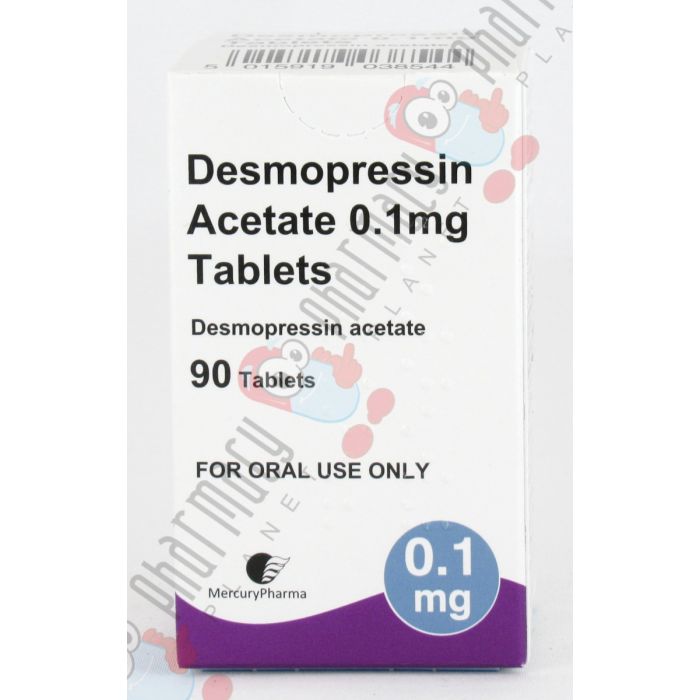Desmopressin Tablets
This medicine is used for the treatment of diabetes insipidus, hemophilia, and nocturnal enuresis and, despite being an analogue of vasopressin, it does not act on V1 receptors, responsible for the vasoconstrictor action, therefore its effect on the vessels blood is practically negligible. Divide the tablets in half or swallow them whole. Do not take Desmopressin with food as the effect of the tablets may be reduced. During treatment with Desmopressin, you should regularly check your body weight, the level of sodium in your blood and/or blood pressure.
the items you wish
to order

by our qualified
prescriber
to your door step
Please use the options provided to make your final selection.

| Brand | Medicine Strength | Size | Price |
|---|---|---|---|
| Desmopressin Tablets | 100mcg | 180 tablets | 195.00 |
| Desmopressin Tablets | 100mcg | 270 tablets | 287.00 |
| Desmopressin Tablets | 100mcg | 90 Tablets | 109.00 |
| Desmopressin Tablets | 200mcg | 30 Tablets | 63.00 |
| Desmopressin Tablets | 200mcg | 60 Tablets | 111.00 |
| Desmopressin Tablets | 200mcg | 90 Tablets | 164.00 |
| DDAVP Tablets | 100mcg | 180 tablets | 195.00 |
| DDAVP Tablets | 100mcg | 270 tablets | 187.00 |
| DDAVP Tablets | 100mcg | 90 Tablets | 109.00 |
| DDAVP Tablets | 200mcg | 180 tablets | 245.00 |
| DDAVP Tablets | 200mcg | 270 tablets | 355.00 |
| DDAVP Tablets | 200mcg | 90 Tablets | 137.00 |
| Desmotabs | 200mcg | 30 Tablets | 68.00 |
| Desmotabs | 200mcg | 60 Tablets | 122.00 |
| Desmotabs | 200mcg | 90 Tablets | 181.00 |
It looks like you missed filling in questions from the last consultation.Click Here to submit your response.


It is the prescribers duty to ensure that the medicine is being used safely and appropriately. please answer a few questions about yourself to help us process your request.
Customer Service Team
Confidentiality & Authenticity Assured
- Fully Regulated UK Pharmacy
- Authentic UK sourced medicines only.
- Trading for more than 10 years.
- Information Governance lead ensures all data is confidential
Need Help With Your Questionnaire?
Our customer service team is on hand Monday-Friday to help you with your queries.
Please call us on 08009788956 or
email us at: headoffice@pharmacyplanet.com
The active substance that makes the tablet work (the active substance) is desmopressin. Desmopressin is an antidiuretic, which reduces the amount of urine produced by the kidneys.










